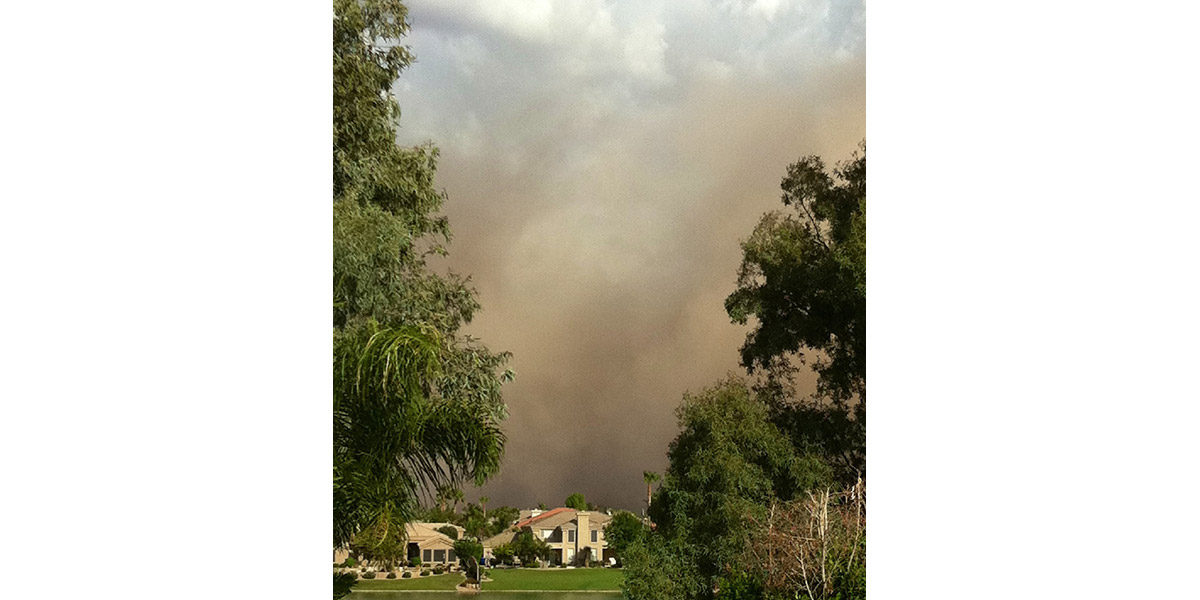 We often get comments in the summer from homeowners who have recently moved to Phoenix from other areas in the U.S. like the Midwest. The puzzled newcomers will ask, “This is Arizona, isn’t it supposed to be a dry heat? What’s with these crazy rainstorms?” They have experienced their first couple of monsoon storms and are concerned about possible damage to their air conditioners and the high humidity levels in their homes.
We often get comments in the summer from homeowners who have recently moved to Phoenix from other areas in the U.S. like the Midwest. The puzzled newcomers will ask, “This is Arizona, isn’t it supposed to be a dry heat? What’s with these crazy rainstorms?” They have experienced their first couple of monsoon storms and are concerned about possible damage to their air conditioners and the high humidity levels in their homes.
Arizona Monsoon Weather Patterns
This year, Phoenix has already experienced heavy rainfall during the winter months due to El Niño. The monsoon season in Arizona officially begins on June 15th. Every year, as summer approaches, there’s a significant shift in the prevailing winds. For most of the year, weather and winds roll in from the west. However, during monsoon season, the prevailing winds come from the south, out of Mexico. As the winds travel north, they pick up moist air from the Gulf of California, the eastern Pacific Ocean and the Gulf of Mexico. The moisture accumulates in the atmosphere over the Southwest and above the Valley of the Sun. As a result, severe thunderstorms, often preceded by haboobs (giant dust storms) are a common occurrence in late June, July, August and early September.
When Monsoons Hit – Remember, It’s Personal Safety First
Monsoons can bring extremely high winds, lightning, driving rain and sometimes, hail. Never underestimate the power of these storms. High winds can knock down trees and power lines. Heavy monsoon rainfall often causes flash flooding, which is extremely dangerous to motorists. If possible, get off the roads and stay indoors during the storm. Here are steps you can take to prepare for monsoon season:
Inspect Your AC System
Check your outdoor AC unit to ensure there are no obstructions, branches or plants growing nearby. Also make sure if flash flooding does occur near your home, your AC unit is well out of reach of any pooling water. Some homeowners keep a tarp or cover handy to protect their exposed air conditioner when the storm hits. Wind whipped dust and driving hail and rain can damage your AC unit. If you do cover your air conditioner for the storm, make sure the power is off before you cover it.
Consider a Whole House Surge Protector
Severe monsoon thunderstorms bring lightning which can topple trees and power lines. Power outages are common during or after monsoons. Fluctuations in power can affect your air conditioner’s electrical system and circuitry. You might want to consider adding a whole house surge protector to prevent power surges from damaging your AC unit.
Check Your AC Drainage Lines
Not only does your air conditioner keep you and your family cool, it also acts as a dehumidifier and removes moisture from the air in your home. During monsoon season, there is a significant increase in humidity, which means more moisture in your home. It’s important that the water drain line is clear and unclogged, so you don’t have water backing up or pooling near your AC unit.
Let Our Service Technicians Prepare Your Air Conditioner for Monsoon Season
Your air conditioner represents a huge investment in your home. We receive many calls every summer for damage done to air conditioners by monsoon storms. Why not have your air conditioning system checked by one of our experienced professionals. Call us today to schedule a pre-monsoon check-up.











